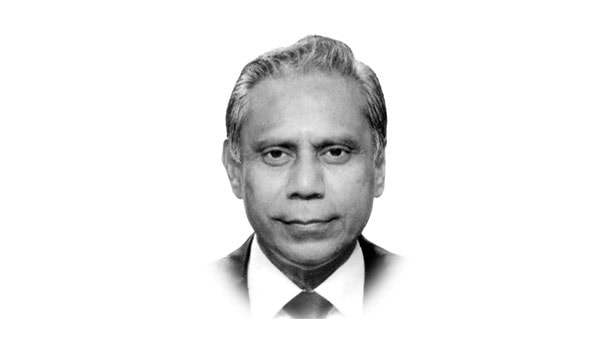What to expect from 20th Congress of CPC?
COMMUNIST Party of China (CPC) has announced the start date of the 20th National Congress, which will be commencing on October 16, 2022.
This meeting is held every five years and the elected representatives of the people who come to this place representing different provinces and ethnic groups elect the central leadership and the politburo.
From this central leadership, every five years, the General Secretary and Vice-President of the CPC are elected, who serve as President and Prime Minister of China.
This procedure is very different from Pakistan or other countries where direct voting takes place.
The Chinese people elect their representatives through voting in different tiers. The elected representatives use their democratic right to further elect a top leadership.
Chinese democracy is misunderstood by the Occident, which perceives it through its own prism.
The people of China have adopted their own system, which not only suits them but has borne highly favourable results.
My interest in the Communist Party of China (CPC) was generated when on the occasion of the 18th National Congress of the CPC, held in Beijing on November 8, 2012.
I was invited as an analyst/journalist to review the proceedings of its conference. I felt privileged to be the only invitee from Pakistan among a thousand international observers.
A decade has elapsed since then and global China watchers will be carefully examining the proceedings of the 20th National Congress because Beijing has assumed the role of an international world leader.
Xi Jinping has achieved a lot of goals set for China, which make him poised to secure an historic third leadership term and cement his place as the country’s most powerful leader since Mao Zedong.
It is notable that on the occasion of the 19th National Congress, it was unanimously decided to eliminate the two-term limit for the President and General Secretary of the CPC.
While the 20th Congress will review the achievements under Xi Jinping’s leadership, it will also carefully examine the challenges, which are also unprecedented.
Corruption, sleaze and bribery, which had permeated in the Chinese hierarchy, was uprooted by cracking down not only on the flies but the tigers with firmly paced legislation, checks and balances.
The miracle of the century was achieved by eliminating absolute poverty from China, which once comprised downtrodden and deprived masses.
The Belt and Road Initiative (BRI) launched by President Xi Jinping in 2013, has become the most important developmental and diplomatic initiative of the 21st century with investments in nearly 150 countries and international organizations.
Under Xi’s watch, China has emerged as a leader in Climate Change and Globalization.
In consonance with Xi’s “Major Country Diplomacy” strategy, which calls for China to assume a greater leadership role for global affairs in accordance with its rising power and status, two other ingenuities based on people-centric development and human security emanate from President Xi Jinping’s leadership.
The first, Global Development Initiative (GDI) , introduced by President Xi Jinping on September 21, 2021, promotes inclusive and open collaboration & is a crucial platform for international cooperation and the public good that China offers.
The second, is the Global Security Initiative (GSI), which was announced in April this year at the BOAO Forum.
According to President Xi Jinping, it is meant to ‘uphold the principle of indivisible security, build a balanced, effective and sustainable security architecture and oppose the building of national security based on insecurity in other countries’.
Xi also emphasized the sovereignty and territorial integrity of all nations, as well as their right to choose their own development paths and social systems.
Both these initiatives emerge in the backdrop of recent challenges. The first, unveiled on occasion of his speech delivered via video at the 76th session of the United Nations General Assembly proposed steering global development toward a new stage of balanced, coordinated and inclusive growth in face of the severe shocks of COVID-19.
The emphasis has been on the revitalization of the economy and the pursuance of more robust, greener and balanced global development.
In his historic address, Xi stressed staying committed to a people-centred approach, safeguarding and improving people’s livelihoods, protecting and promoting human rights through development.
This initiative calls for staying committed to benefits for all, and caring about the special needs of developing countries.
GDI underscores the importance of innovation-driven development and harmony between man and nature.
In the same context, it was announced that China will strive to peak carbon dioxide emissions before 2030 and achieve carbon neutrality before 2060.
Xi’s announcement that his government will step up support for other developing countries in developing green and low-carbon energy, and will not build new coal-fired power projects abroad was welcomed by all and sundry.
The GSI is a proposal, which rejects the notion of a ‘New Cold War, ‘ advocated implicitly by some hawkish quarters, since the region could not afford another cold war since it would destabilize the whole region needlessly.
The new global security proposal questions implicitly the logic of the Indo-Pacific strategy, the formation of AUKUS as well as the Quad involving Australia, Japan, India and the United States.
He dismisses Cold War mentality, hegemonism and power politics as issues that would “endanger world peace” and “exacerbate security challenges in the 21st century.
” Chinese State Councillor and Foreign Minister Wang Yi in a piece published in the People’s Daily elaborated, saying that the initiative “contributes Chinese wisdom to make up for the human peace deficit and provides Chinese solutions to cope with international security challenges.
Thus, it is expected that the 20th National Congress will be a landmark conference that would set policy directions for China, Asia and the whole region enabling President Xi Jinping to achieve second centennial goal of a prosperous, strong democratic, culturally advanced and harmonious nation by 2049.
—The Author is a Retired Group Captain of PAF, who has written several books on China.









